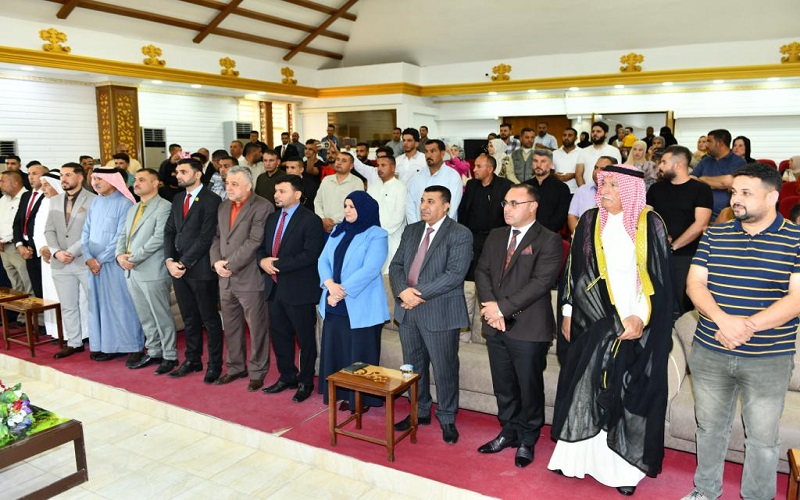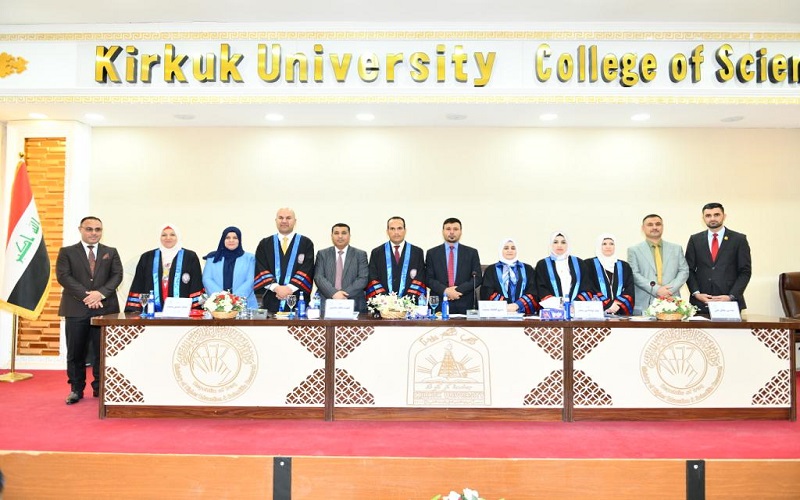In the College of Science/Department of biology, a master’s thesis entitled “Isolation and diagnosis of bacteria and fungi causing otitis media in Hawija district” by student Falah Hassan Yousef, it was discussed under the supervision of both Assistant Professor Dr. Sanaa Hussein Muhammad Al-Jubouri and Assistant Professor Dr. Mona Jalal Ali.
The study, which was discussed in the presence of Representative Mona Al-Sabil, the Dean of the College of Science, Assistant Professor Dr. Neama Ali Ahmed, the Head of the biology Department, Assistant Professor Dr. Yasser Hamad Hamada, and a number of the college’s lecturers , the study included the isolation and diagnosis of bacteria and fungi from patients visiting Hawija General Hospital, for both genders and age groups (1 -70 years, conducting an examination of the sensitivity of bacterial isolates to antibiotics, and evaluating the inhibitory effectiveness of plant extracts and silver nanoparticles.
The results showed the prevalence of Gram-negative bacteria, especially P.aeruginosa and Candida spp. fungi, in patients with middle ear infections. Males in the age group (1-20) were more susceptible to bacterial infections, while females in the age group (21-40) years were more susceptible to fungal infections. Bacterial isolates were more sensitive to the antibiotics Ciprofloxacin and Levofloxacin while fungal isolates were sensitive to Nystatin and Ketoconazole. Alcoholic extracts of Farhat Al-Batal and Al-Sabahbah plants and silver nanoparticles had high inhibitory activity against bacterial and fungal isolates.
In conclusion of his study, the researcher recommended using modern techniques such as polymerase chain reaction to diagnose pathogens. Separating the active compounds of plants and studying their inhibitory effectiveness against bacteria and fungi, studying the effect of other nanoparticles and demonstrating their effect on bacteria and fungi, conducting an experimental study of them inside the body of living organisms in vivo and demonstrating their oxidative and therapeutic effects

 Arabic
Arabic  English
English 
